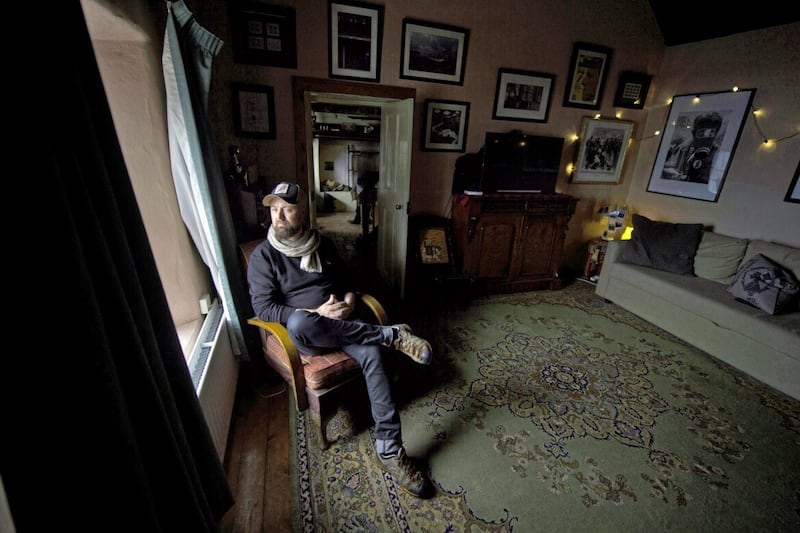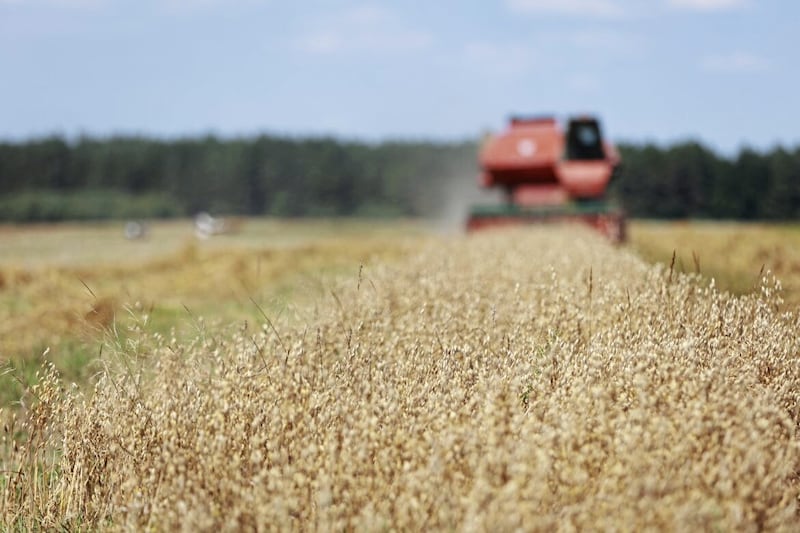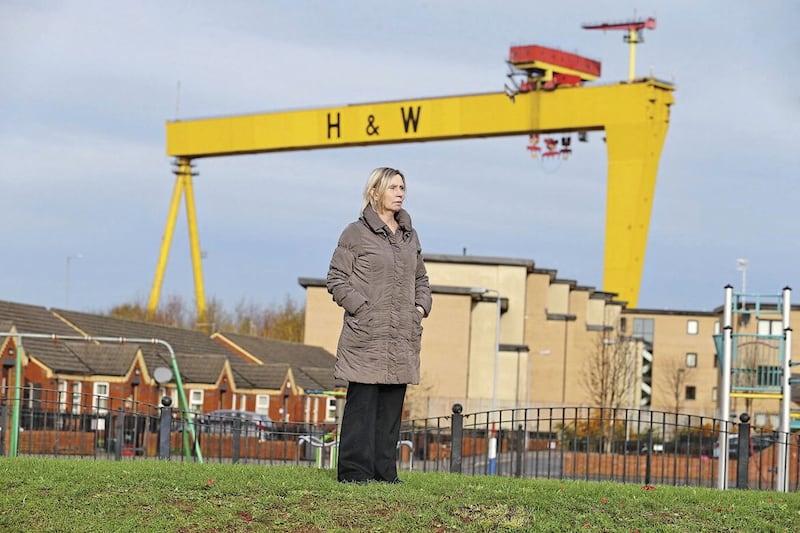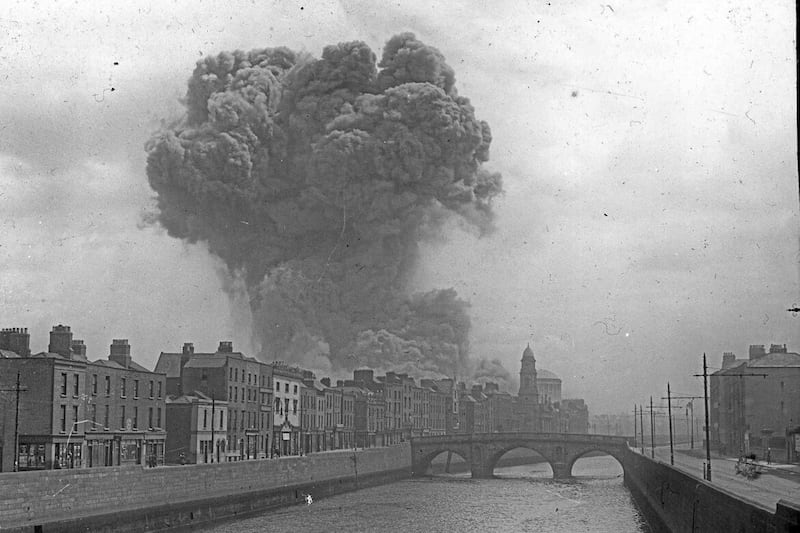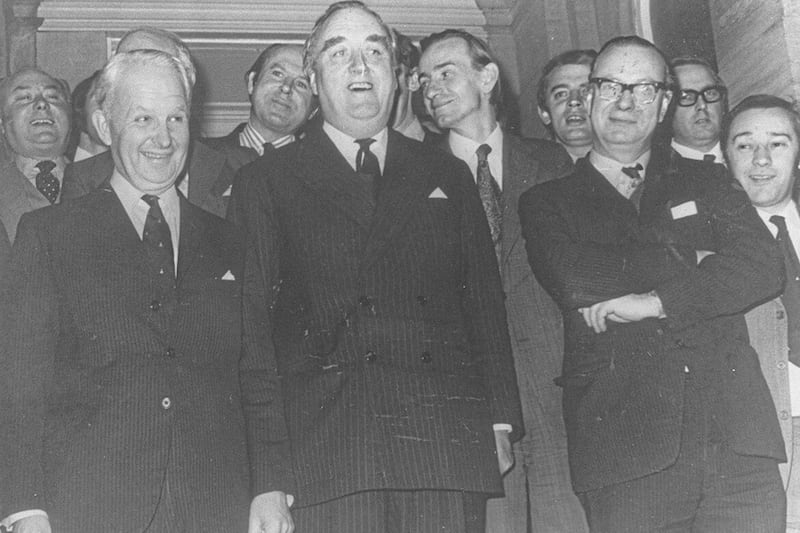BRUCE Clark, who hails from Upperlands, Co Derry, has been on a life-long Greek odyssey and his latest book Athens: City of Wisdom is a classic journalistic and academic analysis of the ancient and the modern.
The quiet laneways of his home village in mid-Ulster are a long distance from Athens city and in an Irish News interview the author explained his wisdom journey.
He comes from the great linen family in Upperlands, William Clark and Sons, but after studying philosophy at Cambridge chose to go into journalism instead of cloth.
Clark first became interested in Greece - the place and the language - as a youngster.
"When I was about 10 years old I saw the Greek alphabet in an encyclopaedia and I read it from beginning to end and it just stuck to me like glue. I didn't have to make the slightest effort to memorise it," he recalls.
"So I must have had some affinity with the Greek language from a very early age."
He had also visited Greece as a young child during a family holiday at the beginning of the seventies... driving all the way from Co Derry to the south of Greece.
At university Clark studied philosophy and political science and afterwards became a trainee at Reuters news agency.
Bruce, who speaks several languages including fluent Greek, was posted to Athens by Reuters in 1972.
He explained that he served four "very formative years in Greece" at a time when Andreas Papandreou was prime minister and was seen as the most radical leader in Nato or the European Community.
Living in Athens at that time accelerated Bruce Clark's love for Greece and particularly for Athens, although previously he had spent part of his university gap year there.
His book on Athens, which has just been published, has taken a huge amount of meticulous research over five years and was completed during the Covid lockdown.
Athens: City of Wisdom, which looks at the past but also glimpses the future, is finely crafted and as expected delves into the many great intellectual, democratic and artistic ideas birthed in that place.
As Professor Paul Cartledge of the University of Cambridge puts it: "From Pheidias's Parthenon to Calatrava's Olympic Stadium, Bruce Clark has pulled off a stunning retrospect and beautifully written overview of one of the world's greatest cities."
When asked to sum up what Athens means to him, Clark tells me: "Athens had one century in which it was the absolute epicentre of human achievement and that was the 5th century BC, whether in culture, drama, poetry, architecture. Absolutely at a level of achievement that was not matched for thousands of years afterwards.
"Thereafter you could say that the principle export of Athens was culture, intelligence, wisdom.
"Athens however lost its geo-political importance after the fifth century."
Yet Athens remained an extremely important centre of intellectual activity, debate, philosophy, training, and for another thousand years of so until 300 400 AD it was still a place where youngsters from all over the Mediterranean would come to be trained in rhetoric and literature and to sharpen their minds.
For example, constructing the Parthenon was far more than a technical challenge.
Clark explained that the technical achievement has only really been fully understood in the past half century of so.
There has been a very extensive programme to restore the Parthenon with much progress since the mid 1970s.
When people think of Athens they also think of more modern times and the late Melina Mercouri, the famous Greek actress, singer, socialist, activist and politician.
Clark recalls meeting Mercouri and noted that she was "a greatly admired lady, and fun to be around".
"I went to a small theatre in Greece and saw her perform there and she said it was just as good as Broadway," he remembers.
Mercouri was, of course, also famed for her campaign to try and get the Parthenon marbles returned to Greece but to this day they remain in the British Museum collection in London.
Asked if he supported the return of the marbles, Clark says: "Yes - the word I would like to use is 'reunification' of the marbles.
"Quite a lot of the frieze is in Athens in a modern museum in a skylight. The new Acropolis museum must be one of the great museums of the world.
"If the marbles which are now in London were brought to Athens that would reunite the elements of the Parthenon frieze, with the temple in view and the Greek sunlight streaming down."
When asked about the future of the great city, Clark says: "It is a delicate ecological balance in Athens, which has 40 per cent of the Greek population.
"It is a mega city and has serious problems with rubbish disposal and there is a dump on the western side of Athens where only a small proportion of rubbish is recycled. That is an ecological sore that has to be closed somehow.
"In a way the city is being pulled in different directions... you have shopping centres and suburban living to the north and east; you have more socially deprived areas on the west side.
"On the coast you have almost Dubai-like high-rise apartments and casinos. In the place where the old airport used to be there is a long-term plan to turn that into a kind of Miami or Dubai, with a flashy mix of shopping malls, and in the middle of it all you have the historic centre and amenities.
"The city is really being pulled in different directions and you wonder can it all hold together."
But Athens has shown extraordinary resilience.
"The current ecological threat comes from global warming and fire - the terrible forest fires, and quite serious floods in Athens in the last month or so. Fire and flood tend to go together unfortunately. So all those challenges need to be met."
Yet the resilience of Athens and Greece has been displayed again and again including recovery from the depths of economic crisis.
:: Athens: City of Wisdom is published by Head of Zeus, £25
****
Rostrevor Literary Festival
BRUCE Clark will speak about Athens: City of Wisdom at the fifth annual Rostrevor Literary Festival on Saturday November 27.
Clark is a veteran international news reporter and writer who has worked for Reuters, The Times, the Financial Times and the Economist. He has been posted as a correspondent in France, Greece, Russia and the United States.
Athens: City of Wisdom is a narrative history of one of the world's oldest cities. It is based in part on his personal experiences in Athens over many years as a fluent Greek speaker and student of Hellenism.
He is also the author of Twice A Stranger - a prize-winning account of the population exchange between Greece and Turkey in the 1920s - and An Empire's New Clothes, a reflection on Russia during its post-communist transition.
His interests include textile history, Scots-Irish history, and the shifting role of religion in society.
Other highlights of the festival will include poet Michael Longley being presented with the first annual Rostrevor Literary Festival Writers Award.
Denis Tuohy, who has been a broadcaster in news and current affairs for half a century, will talk about his new book Streets and Secret Places.
Also appearing will be Cathal McNaughton, the Pulitzer Prize-winning photo journalist who worked in the Irish News photographic department early in his career.
Poet Cathal McCabe, writer and columnist Dr Liam Farrell, mountain runner and author Moire O'Sullivan and harpist Bróna McVittie are also due to take part.
Shelagh Roberts and Pauline Coffey will discuss their book Celebrating 200 years of Saint Bronach's, Kilbroney Parish Church, Rostrevor.
:: Rostrevor Literary Festival, November 27, An Cuan, 44 Shore Road. Tickets £10 via Ticket Tailor at buytickets.at/Rostrevorcommunitybookcorner.



